Q&A: What Is a HIPAA Risk Assessment?
Ensuring that patients' sensitive medical information stays safe is something that every medical practice must take seriously, which is why...
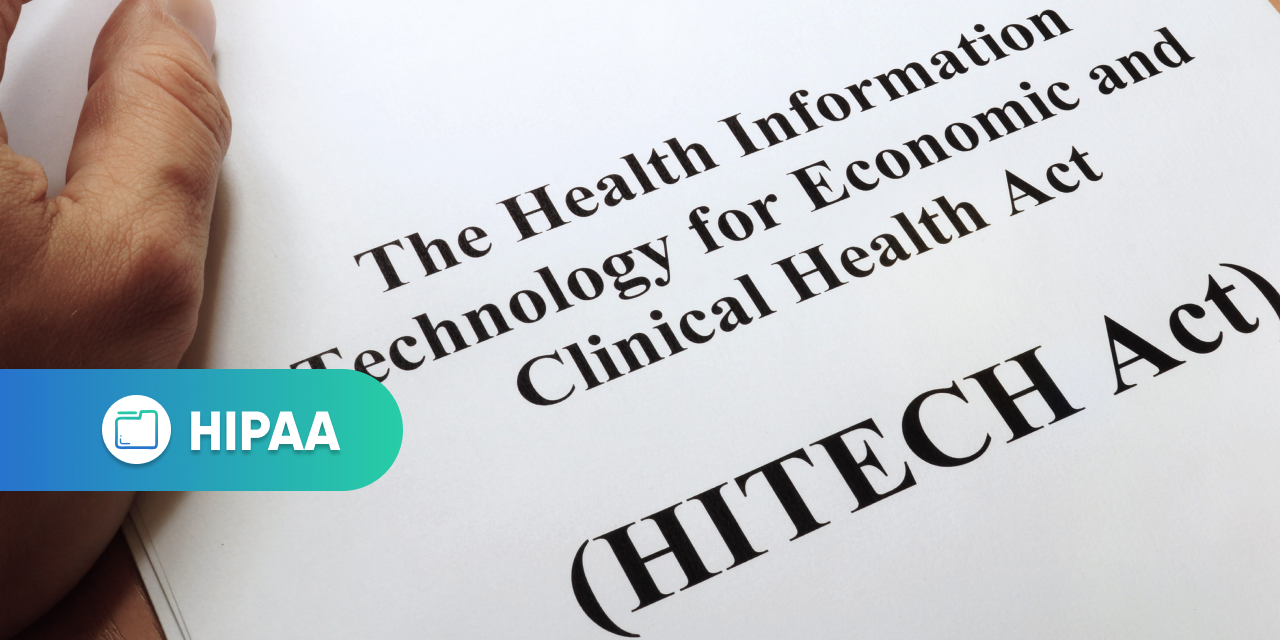
Health information technology uses technology and infrastructure in processing and sharing patient and other medical data. Applying information technology (IT) in healthcare opens opportunities for healthcare professionals (HCPs) to provide better and more accessible care for patients. IT integration in different healthcare systems upgrades healthcare delivery quality, increases patient safety, decreases medical errors, and strengthens the patient-provider relationship. The technologies include:
With a cost-constrained healthcare industry, health IT is a viable and valuable solution to budgeting. Also, given its benefits and relevance to a modern patient population, it offers providers a better chance of delivering a patient-centric care model.
To encourage the widespread use of IT in United States healthcare systems and among independent practices and organizations, the federal government enacted the Health Information Technology for Economic and Clinical Health (HITECH) Act in 2009.
Here’s what you need about the HITECH Act and how it serves the healthcare industry in providing cost-efficient quality care.
On February 17, 2009, the HITECH Act, part of an economic stimulus package, the American Recovery and Reinvestment Act (ARRA), became a law to motivate the health sector to implement IT integrations. Mainly, it promotes the use of electronic health records (EHRs) among healthcare providers by offering incentives.
The government passed the HITECH Act to cut down on the cost of healthcare by sharing medical data, such as protected health information, electronically. The law promotes increasing the exchange of electronically protected health information (ePHI) between HCPs. With such a vision, the scope of privacy and security protection provided by the Health Insurance Portability and Accountability Act of 1996 (HIPAA) needed expansion by increasing the potential legal accountability and providing more vigorous enforcement of the law.
Consequently, the HITECH Act improves compliance by covered entities with HIPAA. It guarantees that their business associates comply with HIPAA rules, requiring them to send notifications to affected individuals if they compromise health information. Furthermore, it introduced stricter penalties for non-compliance to add an extra incentive for the concerned parties to comply with the HIPAA Privacy and Security Rules.
For the healthcare industry to advance, it had to adapt to technological advancements. It had to work on efficiency and care coordination, which HCPs can only achieve with an appropriate system or technology for sharing medical data, principally the EHR. The government perceived that seamless sharing by EHRs was key to healthcare advancement.
While ideal, it was costly for hospitals to transition to EHRs from paper records. When the HITECH Act introduced incentives, the adoption rate of EHRs increased to 14.2% in 2015, from 3.2% in 2008. In around six years since the enactment of the HITECH Act, 86% of independent practices had adopted EHRs, while 96% of non-federal acute care hospitals implemented certified health IT.
This historical leap for the healthcare industry was possible through the HITECH Act. Most healthcare providers would probably still use paper records today without such a law. From 2011 to 2015, the law’s incentive system awarded healthcare providers who demonstrated meaningful use of the EHRs monetary stimulus.
HIPAA is a federal law providing mechanisms and safeguards for handling patient information by healthcare providers. It values the integrity and safety of patient medical data and penalizes or criminalizes parties violating any stipulated rules and regulations.
The primary purpose of the law is to secure PHI from vulnerabilities. It tasks HCPs to safeguard identifying patient information from unauthorized access by third parties. The information includes the following:
The HITECH Act helps the HIPAA law guarantee that all covered entities comply with the HIPAA Privacy and Security Rules. The United States Department of Health and Human Services (HHS) issued these rules to implement HIPAA requirements.
The HIPAA Privacy Rule protects PHI when covered entities, healthcare providers, health plans, clearinghouses, or business associates, disclose the information. When these covered entities transmit PHI electronically, the HIPAA Security Rule applies and requires them to set up necessary administrative, physical, and technical safeguards to protect it.
The HITECH Act restricts the use and disclosure of said information and tasks respective offices to provide patients with copies of their medical records upon their request.
The HITECH Act did not only help make sure HIPAA compliance occurs, but it also brought about the emergence of the HIPAA Breach Notification Rule.
With this new rule, the law requires all covered entities to issue notifications to affected individuals within 60 days of discovering a breach of unsecured PHI. It further requires the concerned offices to send the breach notifications to the respective patients through first-class mail.
The letter should explain the nature of the breach, what patient or medical information was compromised or threatened, what steps are already in place to address the breach, and what the affected individuals should do to reduce the potential for harm.
If a particular breach affects 500 or more records, concerned entities must submit their report to HHS within 60 days of its discovery. In addition, they must submit the same information to a prominent media outlet serving the state or jurisdiction that the breach affects. With more minor breaches, concerned entities need to submit the report within 60 days of the end of the calendar year in which the violation occurred.
Furthermore, the HIPAA Breach Notification Rule requires providers’ business associates to notify them of a breach, report the incident to the HHS, and send notices. But instead of waiting for this undesired moment to happen, HCPs can prevent it. Medical practices can deploy a HITECH and HIPAA-compliant software platform to protect PHI from any security breach.
To guarantee your practice is HITECH and HIPAA compliant, you should invest in a practice management system. A leading patient-centered communication platform like Curogram protects PHI and all medical records. It encrypts all medical records and messages created, stored, transmitted, and received between patients, doctors, and healthcare practitioners. Curogram offers industry-standard, HIPAA-compliant 2-way texting, automated appointment reminders, and an entire front office management suite to help engage with patients and deliver patient-centered care while maintaining compliance.
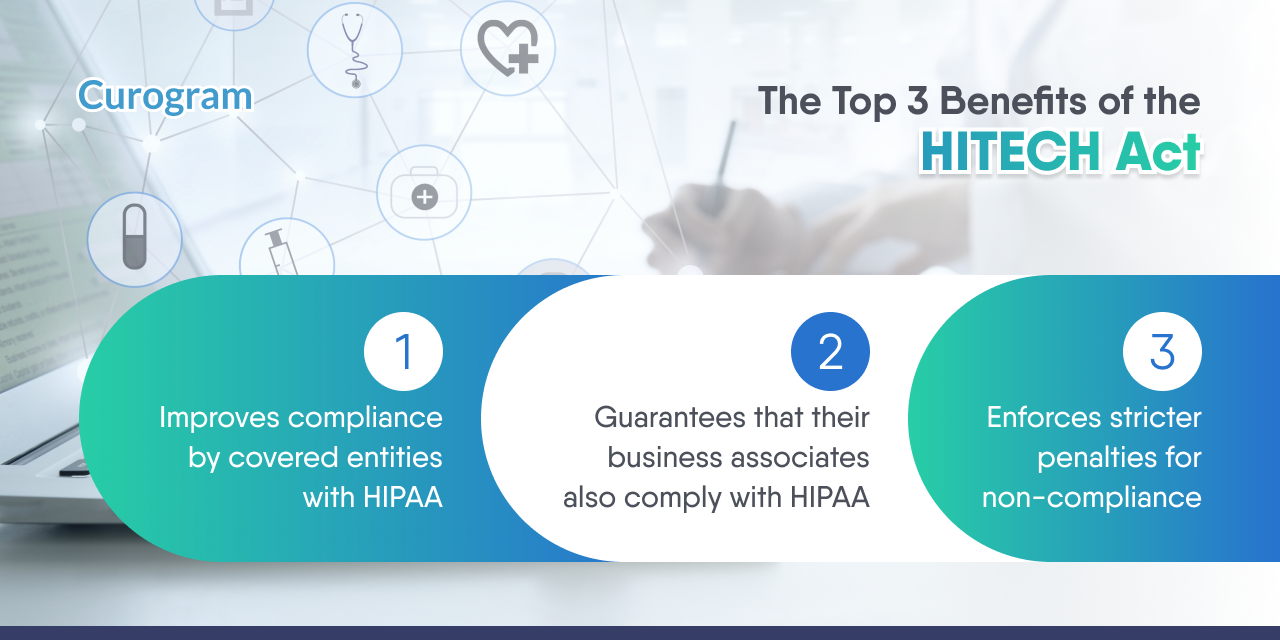
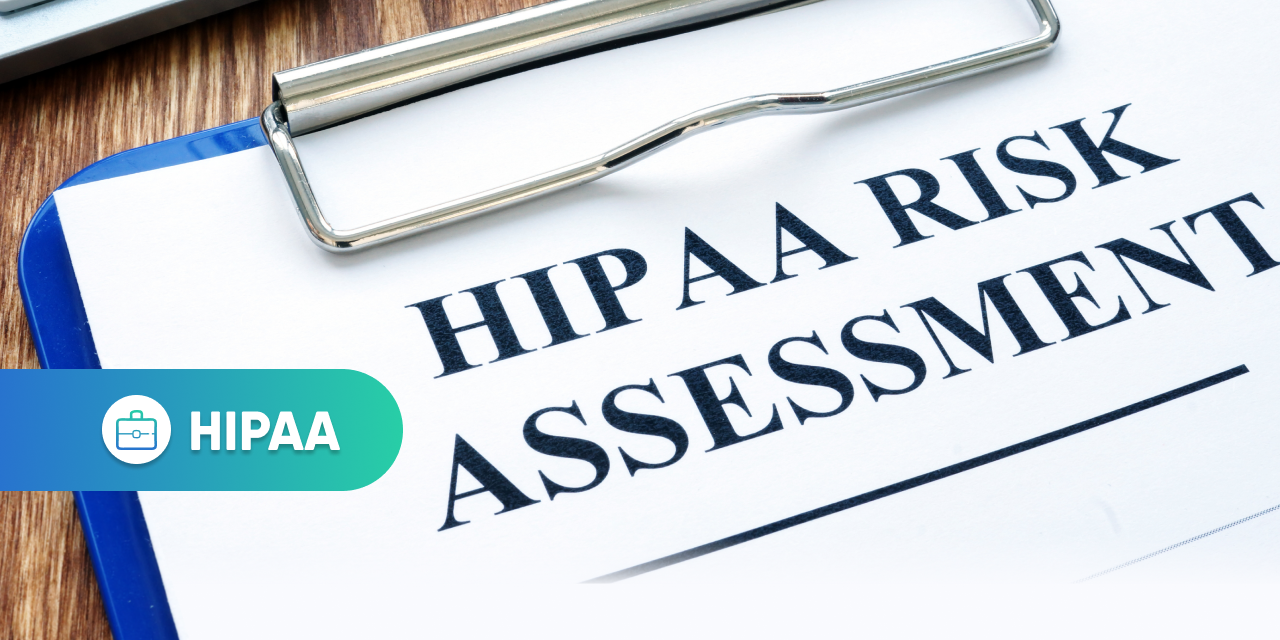
Ensuring that patients' sensitive medical information stays safe is something that every medical practice must take seriously, which is why...
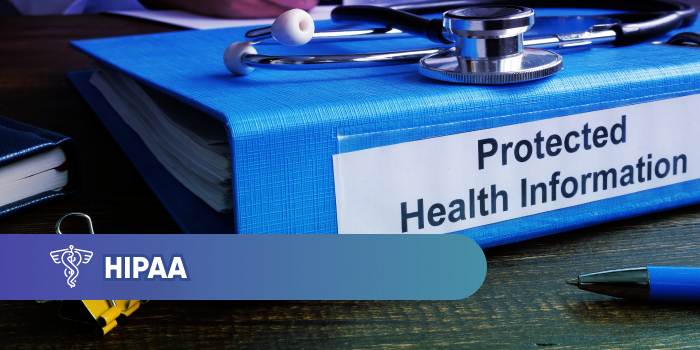
Today, the measure of quality patient care and satisfaction involves how patients perceive their entire healthcare journey, making patient engagement...
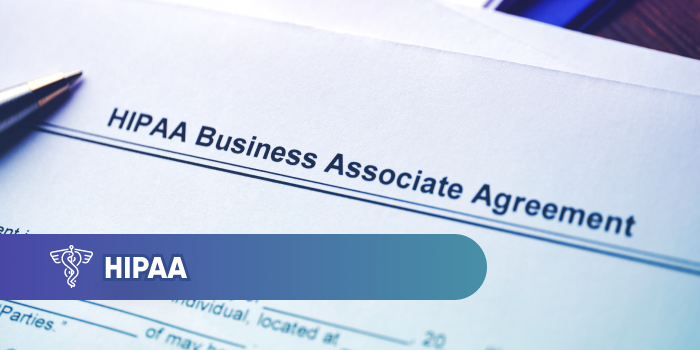
Cyber threats evolve rapidly as new technologies emerge. There’s a growing threat to privacy and data on the internet globally. Therefore, the need...